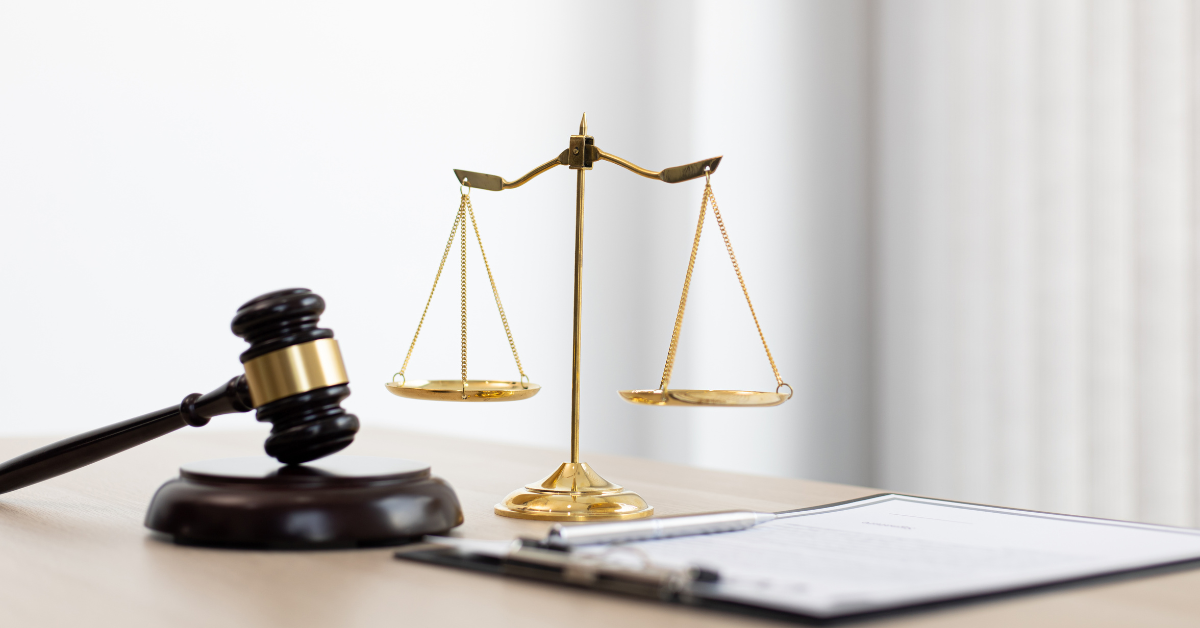
Navigating the Legal Maze: A Guide for Victims

*Collaborative Post
Navigating the legal system as a victim can be daunting due to its complexity and the unfamiliar jargon that often clouds understanding. This guide is designed to demystify the process, offering clear steps and practical advice to empower you throughout your journey. It’s crucial that your voice is heard and your rights are protected, enabling you to move forward with confidence and clarity.
Whether you’re confronting issues related to personal injury, harassment, or any other legal challenge, this guide supports you in making well-informed decisions and seeking justice. By simplifying the legal process into understandable segments, you’ll be better equipped to handle the stresses of the legal system and pursue the outcomes you deserve with greater assurance.
Understanding Your Rights as a Victim
As a victim, knowing your rights can be empowering. This guide will cover essential legal protections, privacy concerns, and advocacy options available to you.
Legal Rights and Protections
Victims are entitled to specific legal protections. These can vary by jurisdiction but generally include the right to be informed about court proceedings, the right to be present at trials, and the right to make a statement during sentencing.
Key Rights:
- Information: Stay updated on the progress of your case.
- Attendance: Attend court proceedings if you wish.
- Input: Share your impact statement during sentencing.
These rights help ensure your involvement and provide a sense of control over the legal process.
Privacy and Safety Concerns
Your privacy and safety are paramount. Legal systems often offer measures to protect your identity and security. For instance, your address may be kept confidential, and in sensitive cases, testimonies can be given behind screens or via video link to avoid confrontation with offenders.
Protective Measures:
- Confidentiality: Shielding your contact details
- Testimony Options: Alternative ways to give evidence
- Restraining Orders: Legal measures to keep offenders away
These measures aim to protect you from further harm and provide a secure environment in which to pursue justice.
Victim Advocacy and Representation
Advocates provide support throughout the legal process. They can explain your rights, accompany you to court, and help you access resources like counselling and financial assistance. Representation from legal professionals may also be provided, ensuring your interests are defended in court.
Support Services:
- Guidance: Understanding the legal system
- Accompaniment: Having someone with you in court
- Resources: Access to additional support services
These advocates and representatives work to ensure you receive the support and justice you deserve.
Navigating the Court System
When involved in the legal process, understanding court procedures, filing documents correctly, and knowing courtroom conduct can ease your journey. Here’s what you need to know about how these processes work specifically in Australia.
Understanding the Court Process in Australia
In Australia, the court process involves several key stages, starting with the filing of charges and leading up to the trial. Legal procedures can vary depending on the complexity of the case and the jurisdiction. It’s important for victims to understand these stages and what to expect at each point.
During trials, Australian courts consider evidence presented by both the prosecution and the defence. The evidence must be carefully documented and presented in accordance with Australian law. In this context, Faraj Defence Lawyers provides an in-depth guide on how to create an apology letter, further explaining its potential impact on court proceedings and outcomes. Understanding the strategic use of such letters can be crucial, as they may influence the perception of remorse and responsibility in legal cases.
Filing Court Documents
Properly filing court documents ensures your case proceeds smoothly. In Australia, you must submit documents like complaints, answers, motions, and other filings within specific deadlines. Pay close attention to detail and follow court rules meticulously to avoid delays or penalties.
It’s crucial to keep copies of all documents for your records. If you’re unsure about any paperwork, seeking legal advice or consulting court clerks can be helpful. Also, some documents may require notarization or specific formatting according to Australian legal standards.
Courtroom Etiquette and Expectations
Understanding courtroom etiquette helps you navigate court appearances effectively. Dress professionally and arrive early. Turn off electronic devices to avoid disruptions. Address the judge respectfully, using “Your Honor” in Australian courts.
When speaking, be clear and concise. Only speak when instructed by the judge or your attorney. Avoid interrupting others. In Australia, if required to write an apology letter, understanding its importance and the correct way to present it is crucial, as it shows remorse and can potentially affect the outcome of the case.
By following these guidelines, you show respect for the court and contribute to a smoother legal process in Australia. Being prepared and respectful can make a significant difference in your case.
After the Verdict
Once the verdict is reached, the journey for victims continues with important considerations such as seeking post-trial support, exploring the possibility of an appeal, and focusing on emotional recovery.
Post-Trial Resources
After the trial concludes, you have access to various resources designed to support you. Victim advocates can connect you with counselling services, support groups, and financial aid programs.
Many organisations provide legal assistance for navigating any post-trial complications or further legal needs. It’s important to stay informed about your rights and the services available to ensure your well-being moving forward. Consider reaching out to non-profits or community services dedicated to offering continued support.
Appeals and Post-Conviction Remedies
If the trial result wasn’t favourable, exploring appeals is an option. Your attorney can guide you on the feasibility of an appeal. Understanding the grounds for appeal, such as legal errors or new evidence, is crucial.
Post-conviction remedies may include motions for a new trial or other legal actions that could impact the case outcome. Discussing with a legal expert will provide clarity on the steps you need to take and any deadlines you need to meet.
Coping and Recovery
Healing after a verdict is a multifaceted process. Engaging with mental health professionals like therapists can help address trauma and emotional scars. Support groups offer a community of individuals who understand your experiences and can provide comfort.
Focusing on self-care is crucial. Activities such as hobbies, exercise, and spending time with loved ones can aid in emotional recovery. Remember, it’s okay to seek help and take the time you need to heal. Your mental and emotional well-being is a priority.
Conclusion
Through this guide, victims navigating the often overwhelming and complex legal system can find a clear path toward understanding and asserting their rights. By breaking down legal terms, procedures, and available support systems, this article equips you with the knowledge to confidently address personal injury, harassment, or any legal challenge. It emphasises the importance of victim advocacy, proper courtroom conduct, and understanding the multifaceted nature of legal processes, particularly in contexts like Australia where specific practices, such as writing apology letters, play a crucial role in court proceedings. Armed with this information, you are better prepared to pursue justice, recover from your ordeal, and move forward with strength.
*This is a collaborative post. For further information please refer to my disclosure page.
If you enjoyed this post you can follow more of our life, opinions and antics over on Facebook, Twitter, YouTube and Instagram. Plus feel free to come and join in with my parenting group ‘From One Parent to Another’ on Facebook.
If you’d like to contact me you can either leave me a comment or drop me a line via my contact me page.
For other topics similar to this one check out these suggestions below…




